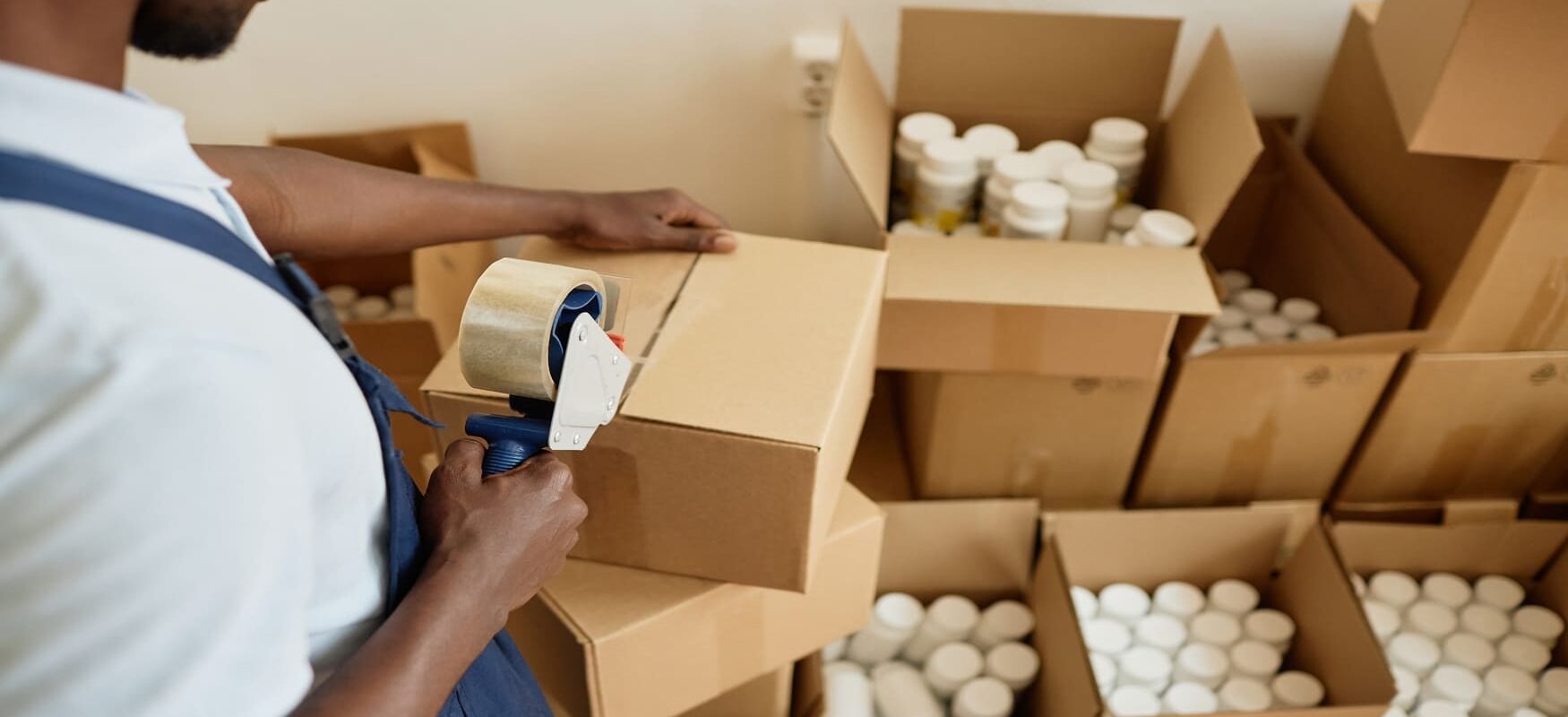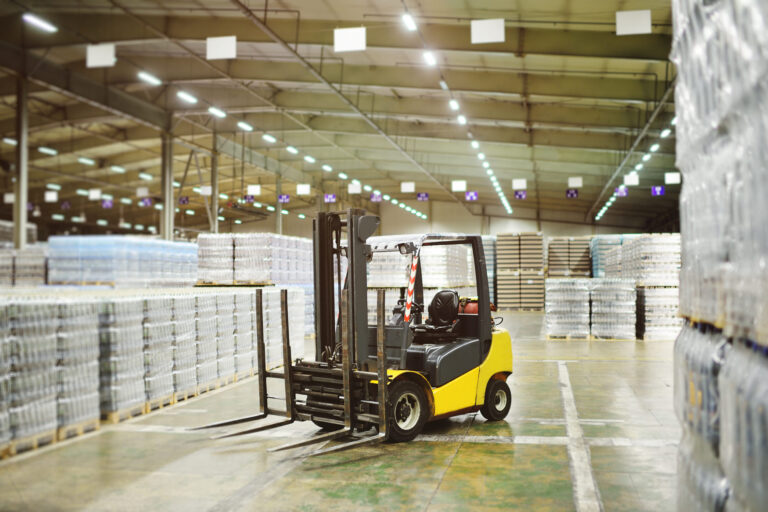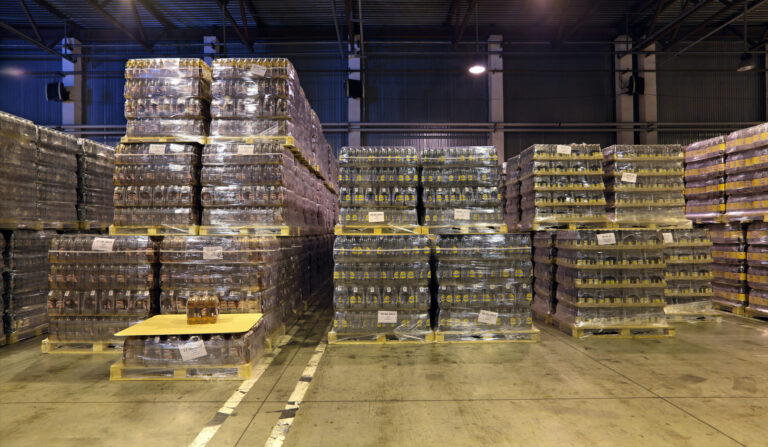Pharmaceutical Warehousing & Distribution: Safe, Compliant Storage Solutions

Effective pharmaceutical warehousing ensures medicines and healthcare products are stored, handled, and distributed under strict conditions. Specialized pharma warehouses use advanced inventory systems, precise temperature control, and rigorous processes to maintain drug quality. Compliance with regulations like FDA cGMP, Good Storage Practice (GSP), and Good Distribution Practice (GDP) is mandatory. For example, GDP mandates that “medicines are stored in the right conditions at all times, including during transportation” These standards – combined with real-time monitoring and trained staff – minimize risks and ensure patients receive safe, effective drugs on time.
Key Components of Pharmaceutical Warehousing and Distribution
Pharmaceutical warehousing involves interconnected processes from inventory receipt to final delivery. Core components include precise inventory control, optimized storage environments, and efficient logistics. Key elements are:
- Integrated logistics: Coordinating refrigerated transport (cold chain), scheduling, and delivery to ensure on-time shipments. Real-time tracking and data analytics improve route planning and responsiveness.
- Quality control: Routine inspections, sampling, and documentation ensure all handling meets regulatory standards, with clear procedures for recalls if needed.
- Technology integration: Advanced Warehouse Management Systems (WMS), IoT sensors, and RFID tagging provide visibility and traceability across the supply chain, tracking each product from storage to shipment.
Inventory Management in Pharmaceutical Warehouses
Meticulous inventory control is at the heart of effective pharmaceutical warehousing. Best practices Accurate inventory management is critical in a pharmaceutical distribution warehouse. Best practices include maintaining detailed records of stock levels, lot/batch numbers, and expiration dates. Automated systems and data analytics help forecast demand and reduce waste. Key strategies include:
- Batch tracking: Use software to log lot numbers and expiry dates, triggering alerts for products nearing expiration (often following FEFO – First-Expire-First-Out).
- Cycle counting and audits: Regular counts and physical inventory audits verify stock accuracy. This prevents stockouts, overstocking, and obsolete inventory.
- Demand forecasting: Data-driven analysis aligns purchasing with consumption patterns, minimizing excess stock and ensuring product availability.
These practices help pharma warehouses minimize waste, keep essential drugs in stock, and support rapid recalls if necessary.
Storage Conditions for Pharmaceutical Products
Proper pharmaceutical warehouse storage conditions are critical for product efficacy. GMP regulations specify requirements for storage environments, including strict temperature control, humidity limits, and segregation of products. For example, temperature-sensitive drugs often require controlled rooms (15–25°C), refrigerated (2–8°C), or frozen storage. Warehouses achieve this through:
- Advanced HVAC systems: Climate control units maintain set ranges. Automated sensors provide real-time monitoring and trigger alarms on deviations.
- Emergency backup: Generators and contingency plans keep storage conditions stable during power outages or equipment failures.
- Segregated zones: Dedicated areas for ambient, refrigerated, and frozen goods prevent cross-contamination and ensure each product stays in its required environment.
GSP/GDP guidelines mandate continuous logging of these conditions to ensure potency and safety. Proper labeling and secondary containment further prevent mix-ups. With these controls in place, a pharmaceutical warehouse can prevent degradation and deliver drugs to patients in optimal condition.
Efficient Distribution & Cold Chain Logistics
Timely, secure distribution is essential in the pharmaceutical supply chain. Cold chain logistics – specialized refrigerated transport – keep vaccines, biologics, and other temperature-sensitive drugs within safe ranges until delivery. Key practices include:
- Real-time shipment tracking: GPS and temperature loggers monitor each shipment. Data is recorded for compliance and quality assurance.
- Regulatory serialization: U.S. rules like the Drug Supply Chain Security Act (DSCSA) require serialized tracking of individual medicine packages throughout distribution. Robust IT systems and 24/7 security ensure end-to-end traceability.
- Optimized routing: Data-driven route planning and carrier coordination minimize transit times and exposure to risk.
By leveraging technology and planning, pharmaceutical distribution warehouses ensure that medicines arrive at healthcare facilities promptly and safely. Every step – from loading docks to delivery trucks – is managed to maintain product integrity and protect patient safety.
Best Practices in Pharmaceutical Warehouse Management
Adopting industry best practices keeps pharmaceutical warehouses efficient and compliant. Core practices include:
- Continuous Staff Training: Employees are trained on hygiene, handling protocols, and regulatory updates. Well-informed staff reduce errors and maintain compliance. For instance, companies invest in ongoing GMP/GDP training to ensure every worker understands critical procedures.
- Technology Integration: Implementing a modern WMS with IoT and automated picking systems streamlines operations. Blockchain and serialization systems add transparency, while AI-driven analytics can predict bottlenecks.
- Continuous Improvement: Regular audits and performance reviews identify areas for optimization. Warehouses should benchmark KPIs (like order accuracy and on-time shipping) and refine processes. Staying ahead of technological advancements and regulatory changes ensures long-term competitiveness and compliance.
These measures create a culture of quality and efficiency. By monitoring performance and embracing innovation, pharma warehouses stay ahead of regulatory changes and ensure reliable handling of medicines.
Choosing a Pharmaceutical Warehousing Partner
When outsourcing storage or distribution, choosing the right warehousing partner is crucial for compliance and reliability. Evaluate potential partners based on:
- Regulatory Compliance & Certifications: Ensure the facility holds relevant accreditations (e.g., FDA, GMP, ISO 9001, ISO 13485, or industry-specific certifications).
- Temperature & Humidity Control: Verify the warehouse offers specialized cold (2–8°C), frozen (-20°C), and ambient zones, with real-time monitoring. Compliance with GSP/GDP requires 24/7 logging of environmental conditions to protect drug quality.
- Security & Inventory Management: Look for 24/7 surveillance, restricted access, and electronic WMS. Compliance with the DSCSA and similar regulations means the partner can track batches and serial numbers.
- Scalability & Distribution Network: The provider should handle changing volumes and have strategically located facilities. A nationwide network allows quick expansion and fast local distribution.
For pharmaceutical manufacturers and logistics partners, teaming with a specialized 3PL warehousing provider ensures compliance, flexibility, and the safe handling of vital products.
Partner with OLIMP for Compliant Pharmaceutical Warehousing
Pharmaceutical warehousing demands expertise, flexibility, and trust. OLIMP Warehousing is a 3PL leader with an extensive network of compliant warehouses. Its platform connects clients to FDA/GMP-compliant medical warehouses equipped for all storage needs. OLIMP offers on-demand space without long-term commitments, 24/7 security, and dedicated support through Partner Success Managers.
Ready to secure reliable pharmaceutical storage and distribution? Request a quote from Olimp Warehousing today to find the optimal facility for your products. OLIMP’s team will match you with a pharmaceutical distribution warehouse that ensures product integrity, meets all GMP/GDP/GSP standards, and streamlines your supply chain. With OLIMP’s expertise, you can focus on patient care while knowing your inventory is in expert hands.
Frequently Asked Questions (FAQ) – OLIMP Warehousing
Q: What are the optimal storage zones and layout for a pharma warehouse?
An optimal pharmaceutical warehouse layout uses segregated storage zones based on product requirements. These typically include ambient (15–25°C), refrigerated (2–8°C), frozen, controlled substances, quarantine, and returns areas. Clear zoning reduces cross-contamination risk, supports compliance, and improves picking accuracy.
Q: Which temperature monitoring systems meet FDA and EMA requirements?
FDA- and EMA-compliant temperature monitoring systems include validated digital data loggers, continuous monitoring sensors, and cloud-based monitoring platforms with audit trails. These systems must provide real-time alerts, secure data storage, and documented calibration to meet GMP and GDP requirements.
Q: How do you validate and qualify a warehouse temperature monitoring system?
Validation involves IQ (Installation Qualification), OQ (Operational Qualification), and PQ (Performance Qualification). The process confirms correct installation, accurate temperature readings under normal and worst-case conditions, and reliable long-term performance in line with regulatory guidelines.
Q: What training program is needed for cold chain warehouse staff?
Cold chain staff require training in GDP/GMP compliance, temperature-sensitive handling, deviation reporting, hygiene practices, and documentation procedures. Regular refresher training and documented competency assessments are essential to maintain regulatory compliance and product integrity.
Q: What are best practices for handling temperature excursions and investigations?
Best practices include immediate isolation of affected products, root-cause analysis, documented impact assessments, and corrective and preventive actions (CAPA). All excursions must be logged, investigated, and reviewed before product release to ensure patient safety and compliance.
You may be interested in

Bonded Warehousing Solutions: Reduce Duties & Streamline Imports
Bonded warehousing solutions allow importers to store goods without upfront duty payments, effectively creating duty-free storage that boosts cash flow and streamlines the import process. By using a bonded warehouse – a secure facility under customs supervision – companies can defer taxes and tariffs on imported goods until those goods are released for domestic sale. […]

Food Warehousing and Food Grade Warehousing: Challenges and Solutions
Operating a warehouse that stores food requires specialized handling beyond standard warehousing. Food-grade facilities must meet strict sanitation, temperature control, and traceability standards to prevent contamination and spoilage. In fact, “food-grade warehousing is crucial for maintaining product quality, ensuring consumer safety, and complying with industry regulations.”. By upholding these standards, food warehouses become the critical […]

Guide to Top Alcohol 3PL Companies in Los Angeles
Third-party logistics (3PL) providers handle warehousing and distribution on behalf of brands, including specialized cases like alcoholic beverages. In the Los Angeles area, a major U.S. trade hub, partnering with a local 3PL can cut delivery times and costs. A Los Angeles 3PL warehouse stores, picks, and ships products (wine, beer, spirits) under strict compliance. […]
Ready to streamline your warehousing needs?
Request a quote today and discover how OLIMP's tailored solutions can optimize your operations